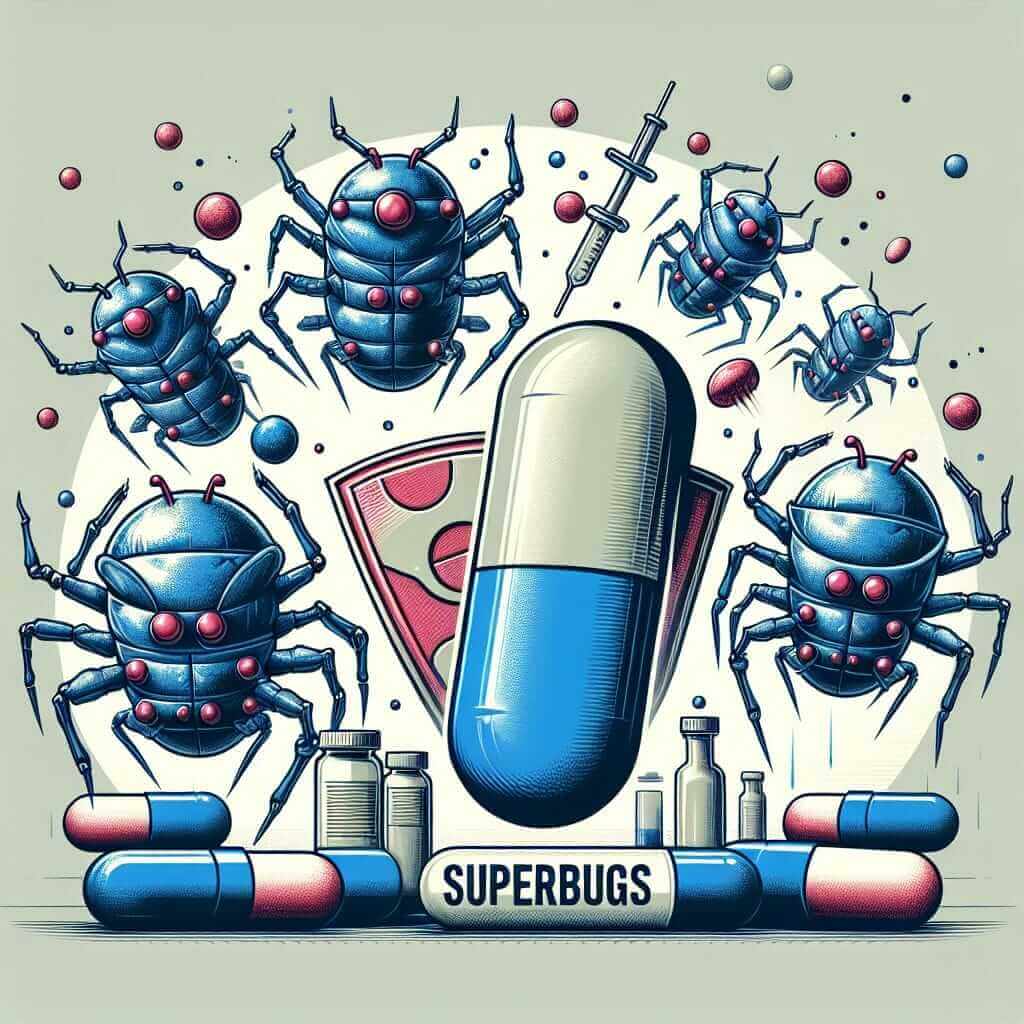The Reading section of the IELTS test can be challenging, especially when dealing with complex scientific topics. In recent years, there has been a growing focus on health-related topics, one of which is antibiotic resistance. Given its increasing relevance, it wouldn’t be surprising to see a passage on “What are the consequences of antibiotic resistance?” appear in an upcoming exam. This topic not only tests your reading comprehension but also your ability to understand and analyse scientific information.
Reading Passage
The Consequences of Antibiotic Resistance (Medium Text)
Antibiotic resistance is a critical issue that poses a significant threat to global health, food security, and development. The misuse and overuse of antibiotics have accelerated the natural process of antibiotic resistance, leaving many bacterial infections harder to treat. This resistance occurs when bacteria change in response to the use of these medicines. As a result, standard treatments become ineffective, infections persist and may spread to others.
One of the most alarming consequences of antibiotic resistance is the rise of “superbugs” – bacteria that have become resistant to multiple types of antibiotics. These superbugs can cause infections that are difficult to treat and may lead to prolonged illness or death. Examples include Methicillin-resistant Staphylococcus aureus (MRSA) and multi-drug-resistant tuberculosis (MDR-TB).
In agricultural settings, the use of antibiotics to promote growth in livestock has further exacerbated the problem. Resistant bacteria can be transmitted to humans through the food chain, leading to foodborne illnesses that are challenging to treat. Additionally, antibiotic resistance leads to higher medical costs. More expensive therapies, prolonged hospital stays, and increased mortality are direct economic impacts.
Moreover, antibiotic resistance compromises the success of surgical procedures and treatments such as chemotherapy, which rely on effective antibiotics to prevent infections. Without effective antibiotics, the risk of postoperative infections increases, thus making these vital treatments riskier.
The issue of antibiotic resistance extends beyond human health, affecting animals and the environment. Antibiotic residues can enter water systems through agricultural runoff, contaminating water supplies and perpetuating the cycle of resistance.
In conclusion, antibiotic resistance has far-reaching consequences that affect every aspect of human health and development. Global cooperation and responsible antibiotic use are essential to combat this growing threat.
 Superbug Threat
Superbug Threat
Questions
Multiple Choice Questions
-
What is the primary cause of antibiotic resistance?
- A) Natural evolution of bacteria
- B) Misuse and overuse of antibiotics
- C) Lack of healthcare facilities
- D) Poor personal hygiene
-
Which of the following is NOT mentioned as a consequence of antibiotic resistance?
- A) Increased medical costs
- B) Compromised surgical procedures
- C) Enhanced immunity to infections
- D) Prolonged hospital stays
-
How can antibiotic-resistant bacteria from livestock reach humans?
- A) Through direct contact with animals
- B) Via food chain transmission
- C) Through airborne particles
- D) By drinking contaminated water
True/False/Not Given Questions
- Antibiotic resistance can lead to a rise in superbugs.
- Antibiotic use in agriculture is beneficial for human health.
- Without antibiotics, chemotherapy would not be as effective.
Summary Completion
Complete the summary below using words from the passage.
Antibiotic resistance occurs when bacteria change in response to the use of antibiotics. This leads to infections becoming (7) to treat, causing increased medical costs and mortality. Resistant bacteria, known as (8), can be transferred from livestock to humans through the ___ (9) chain.
Answer Key
Multiple Choice Answers
- B) Misuse and overuse of antibiotics
- C) Enhanced immunity to infections
- B) Via food chain transmission
True/False/Not Given Answers
- True
- False
- True
Summary Completion Answers
- harder
- superbugs
- food
Common Mistakes to Avoid
- Misreading Keywords: Pay attention to keywords such as “NOT” or “EXCEPT” in questions.
- Skimming Too Quickly: Ensure thorough understanding rather than relying solely on skimming.
- Misinterpreting True/False/Not Given: Base your answers purely on information given in the text.
Vocabulary
- Antibiotic resistance (noun): /ˌæntɪˈbaɪˌɒtɪk rɪˈzɪstəns/ – the ability of bacteria to withstand the effects of an antibiotic.
- Superbugs (noun): /ˈsuːpərˌbʌɡs/ – bacteria that are resistant to several types of antibiotics.
- Methicillin-resistant Staphylococcus aureus (MRSA) (noun): /ˌmɛθəˈsɪlɪn-rɪˈzɪstənt stæfəloʊˈkɒkəs/ – a type of bacteria resistant to many antibiotics.
- Multi-drug-resistant tuberculosis (MDR-TB) (noun): /ˈmʌlti-drʌɡ rɪˈzɪstənt tjuːˌbɜːrˈkjʊloʊsɪs/ – a form of tuberculosis that does not respond to a standard treatment.
Grammar Structures
- Relative Clauses: “Antibiotic resistance is a critical issue that poses a significant threat…”
- Passive Voice: “Antibiotic residues can enter water systems through agricultural runoff…”
- Conditionals: “Without effective antibiotics, the risk of postoperative infections increases…”
Tips for Achieving a High Reading Score
- Practice Regularly: Engage with various scientific texts to get comfortable with complex topics.
- Expand Your Vocabulary: Focus on understanding and using scientific and health-related terms.
- Develop Skimming and Scanning Techniques: Quickly identify key information and understand the gist of complex passages.
- Manage Your Time: Allocate appropriate time to each section of the test to avoid rushing.
By understanding the consequences of antibiotic resistance through this practice passage, you’re well on your way to mastering the IELTS Reading section. Keep practising, and good luck with your studies!


